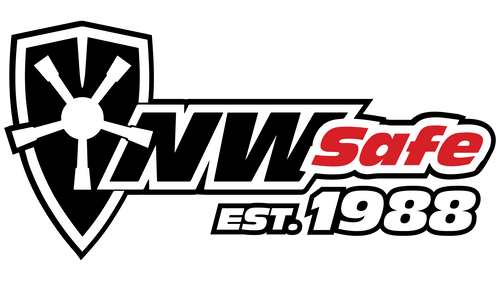Have you ever watched the news as fires rip through cities and towns? Residents are typically left hopelessly picking through the rubble, searching for essential tax documents and personal effects.
Birth certificates. Tax records. Deeds. When your home faces a fire, they can all be gone in the blink of an eye if they aren’t stored in a fire-safe box.
And the scariest thing is, those documents are often essential for rebuilding the life those poor souls once had.
But the chances are good that around your tax deadline, when you’ve settled up with Uncle Sam, you don’t want to think about what papers to safely store and which ones to toss. You’re probably more interested in planning how to spend your tax return. And that’s perfectly normal.
But before you completely shift gears, take a moment to make sure you and your family are protected by properly storing your important documents.
Fire-Safe Document Storage
The temperature of house fires and forest fires can vary based on a variety of factors including materials, quantity of materials, and response times. Generally speaking, a forest fire — like the recent fires in California — will do far more damage to your home because they often burn until they’ve burnt themselves out.
This is unlike a house fire, which is typically extinguished before it has consumed your entire house. The longer and the hotter the burn, the better fire-resistant safe you need.
Because forest fires and home fires can be sparked in a variety of ways, it's best to take precautions in advance.

What Safe Has the Highest Fire Rating?
When you shop for a fire-safe box to store your difficult-to-replace documents, it’s important to know fire ratings are not regulated. Manufacturers assign their own fire ratings — often without even conducting any testing.
Additionally, you want to remember that they are not completely fireproof safes. Rather, some safes offer fire protection for a longer period of time, which can give you more peace of mind.
Luckily, there are trustworthy manufacturers, like Liberty Safe, that conduct extensive testing and share their results. But the proof of labeling can really be seen in how a safe manufacture’s product survives a fire.
In the case of Liberty’s safes, the recent devastating fires that ripped through California showed just what these sturdy safes can handle.
Two neighbors returned to find their safes among the rubble. One neighbor had a Liberty safe. All of his family’s valuables were intact. The other neighbor had a competitor’s safe. All of his precious documents had been reduced to ash.
Will My Digital Keypad Survive a Fire
In most instances, the digital keypad on your gun safe will not survive a fire. However, this doesn’t mean you will be unable to access the contents of your safe. An experienced gun safe technician can help you open your safe’s door to retrieve your important papers.
What Tax Documents Should You Save?
You should save proof you filed your tax return indefinitely. The IRS has three years in which to audit a return. However, this limit does not apply if the IRS believes you never filed a return. If you receive a letter from the IRS declaring you never filed, the responsibility lies with you to prove otherwise.
Proof of you filed your tax return could include:
- A registered or certified receipt.
- An email acknowledging your return was accepted. Software services, like TurboTax, auto-generate these emails. If you work with an accountant, ask them to send a letter acknowledging your return was accepted.
What Other Tax Documents Should You Save?
In addition to your Federal income tax, you will also want to save a copy of the returns for your state income tax indefinitely. This is not a concern for Washington State residents, but Oregon and California residents will want to keep these essential records.
What Personal Documents Should You Protect from Fire?
Personal documents are essential for proving you are who you say you are. Without them, it’s incredibly difficult to do things like access your bank accounts and open a line of credit. You want to make sure you protect the following personal documents from fire:
- Social Security Card
- Birth Certificate
- Passport
- Your most recently expired Driver’s License
What Documents to Keep for Your Home
For most of us, our home is the largest single asset we own. And, it can generate one heck of a tax bill when it’s sold.
You can gain up to $250,000 on the sale of your primary residence ($500,000 if you file jointly), but only if certain conditions are met. If your gains exceed the dollar limit, the excess funds can be taxes.
While this doesn’t mean you want to sell your home for less than you can get, it is a good idea to maximize the ‘basis’ of your home. The ‘basis’ of your home is the combined sum of the following three categories:
1. What you paid for the home
2. The cost of any capital improvements, including, but not limited to:
- Additions
- A new roof
- Appliances
- Updated Landscaping
- The addition of an in-ground swimming pool
3. The costs associated with making home improvements, including, but not limited to:
- Charges for installing utility services
- Legal fees (including fees for a title search, preparing the sales contract and preparing the deed)
- Recording fees
- Survey fees
- Title insurance
- Transfer or stamp taxes
Additional Documents to Protect from Fires
There are a variety of other assets and investments you may acquire over time. You’ll want to keep a written record of these safe and protected from fire. These could include, but are not limited to:
- Credit Card Account Information
- Essential Passwords (such as those needed to access online bank accounts)
- Stocks
- Precious artwork
- Deeds to rental properties and vacation homes
- Will and testament
